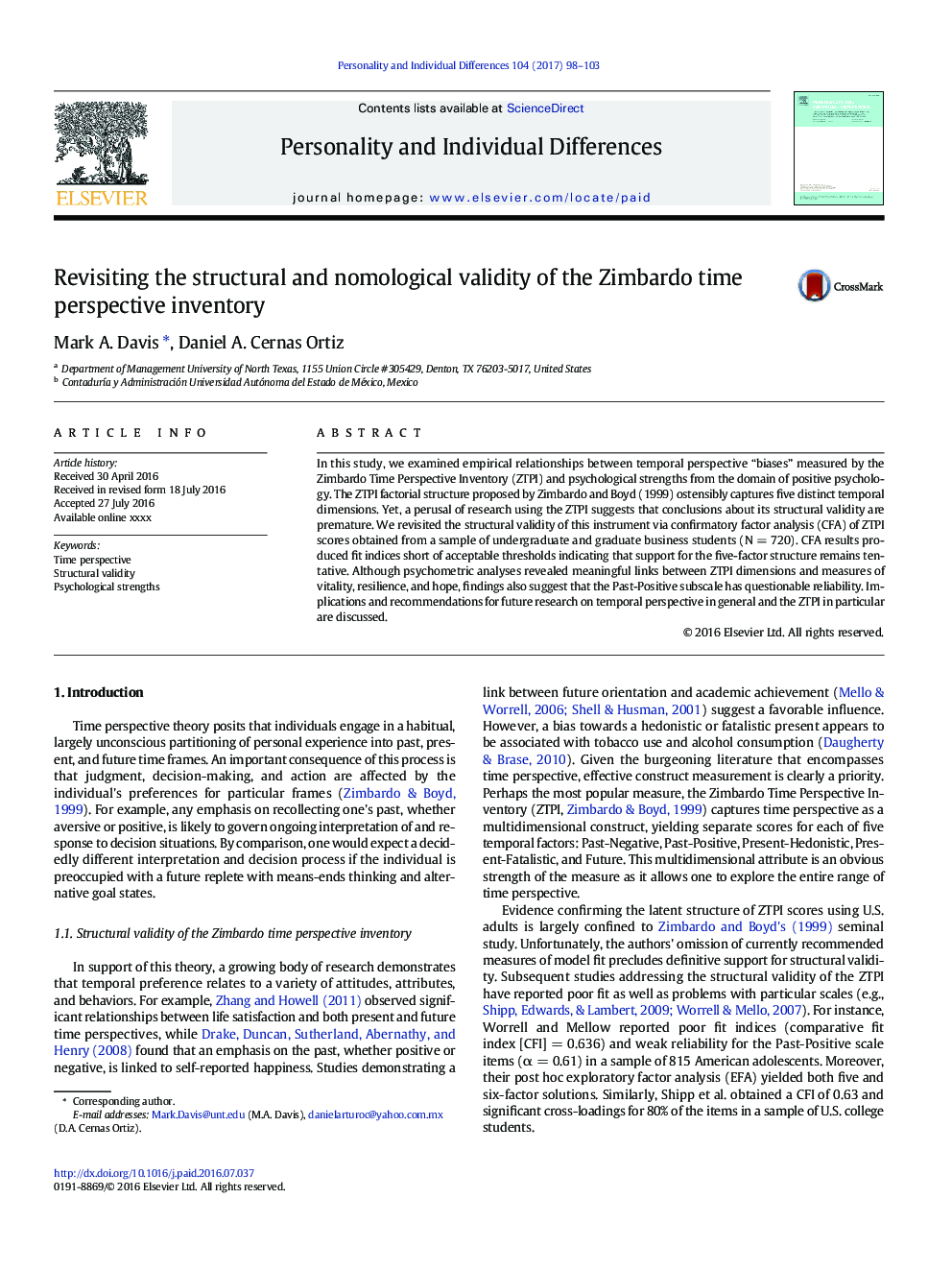| Article ID | Journal | Published Year | Pages | File Type |
|---|---|---|---|---|
| 7249440 | Personality and Individual Differences | 2017 | 6 Pages |
Abstract
In this study, we examined empirical relationships between temporal perspective “biases” measured by the Zimbardo Time Perspective Inventory (ZTPI) and psychological strengths from the domain of positive psychology. The ZTPI factorial structure proposed by Zimbardo and Boyd (1999) ostensibly captures five distinct temporal dimensions. Yet, a perusal of research using the ZTPI suggests that conclusions about its structural validity are premature. We revisited the structural validity of this instrument via confirmatory factor analysis (CFA) of ZTPI scores obtained from a sample of undergraduate and graduate business students (NÂ =Â 720). CFA results produced fit indices short of acceptable thresholds indicating that support for the five-factor structure remains tentative. Although psychometric analyses revealed meaningful links between ZTPI dimensions and measures of vitality, resilience, and hope, findings also suggest that the Past-Positive subscale has questionable reliability. Implications and recommendations for future research on temporal perspective in general and the ZTPI in particular are discussed.
Keywords
Related Topics
Life Sciences
Neuroscience
Behavioral Neuroscience
Authors
Mark A. Davis, Daniel A. Cernas Ortiz,
